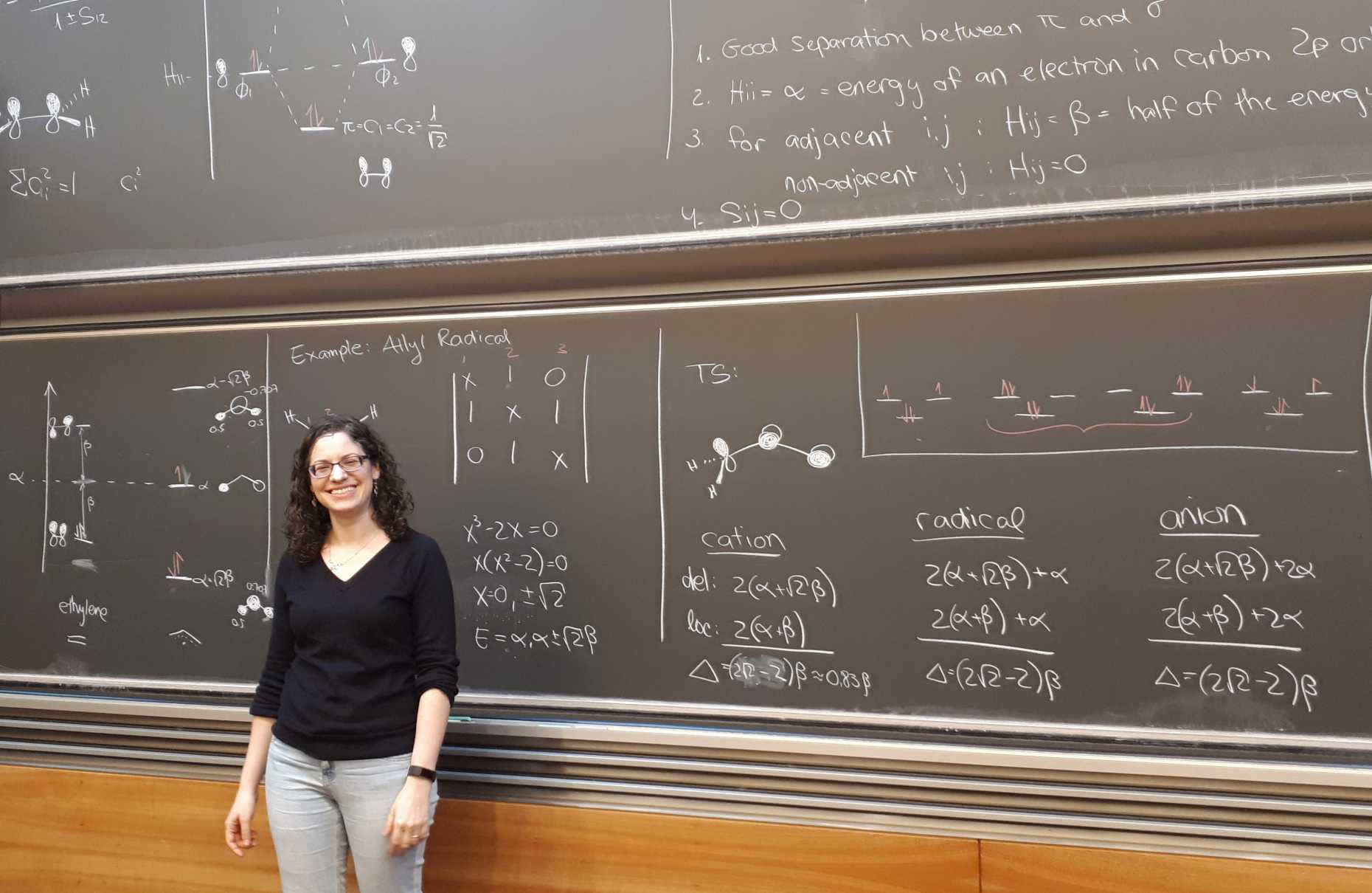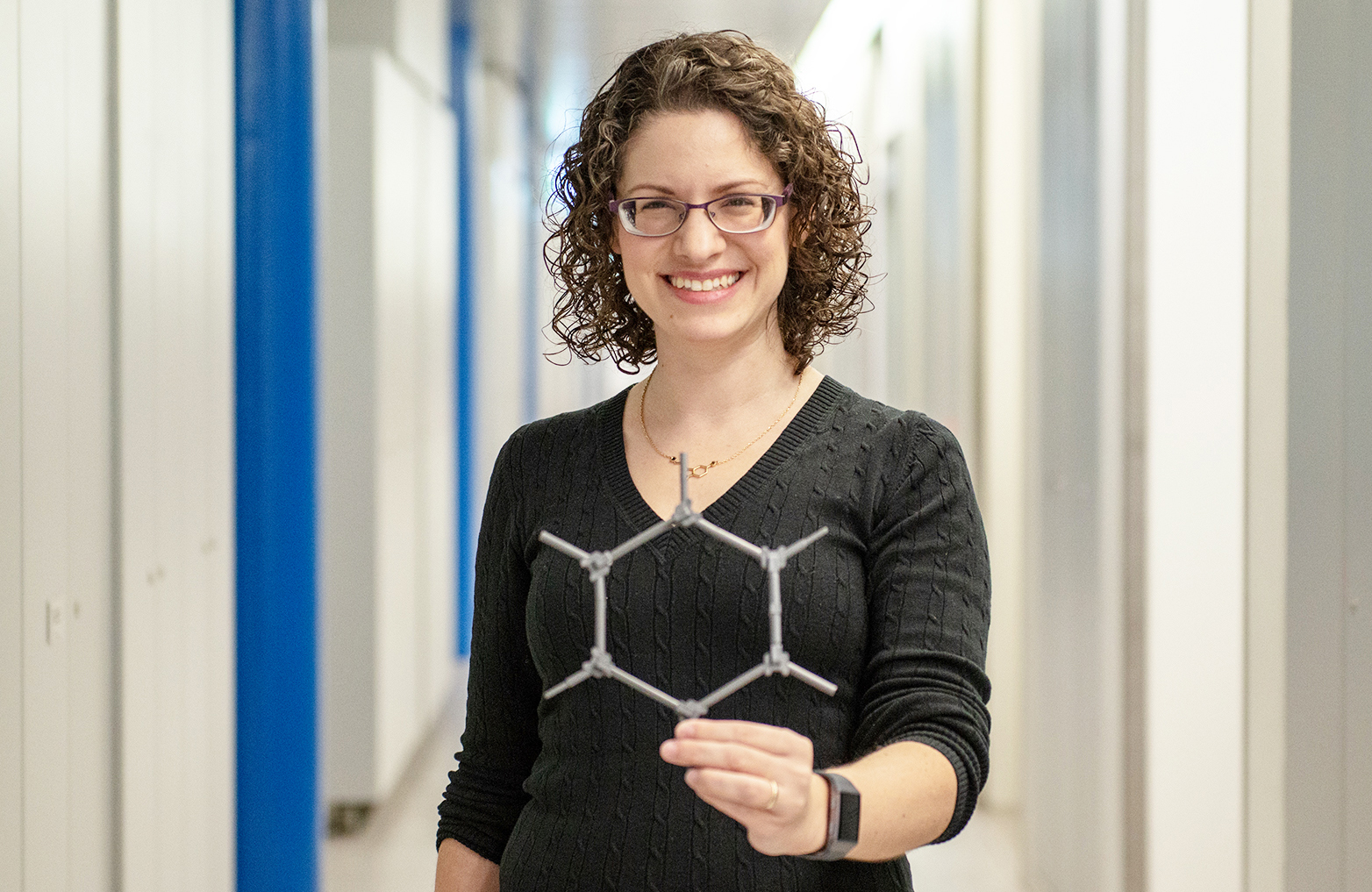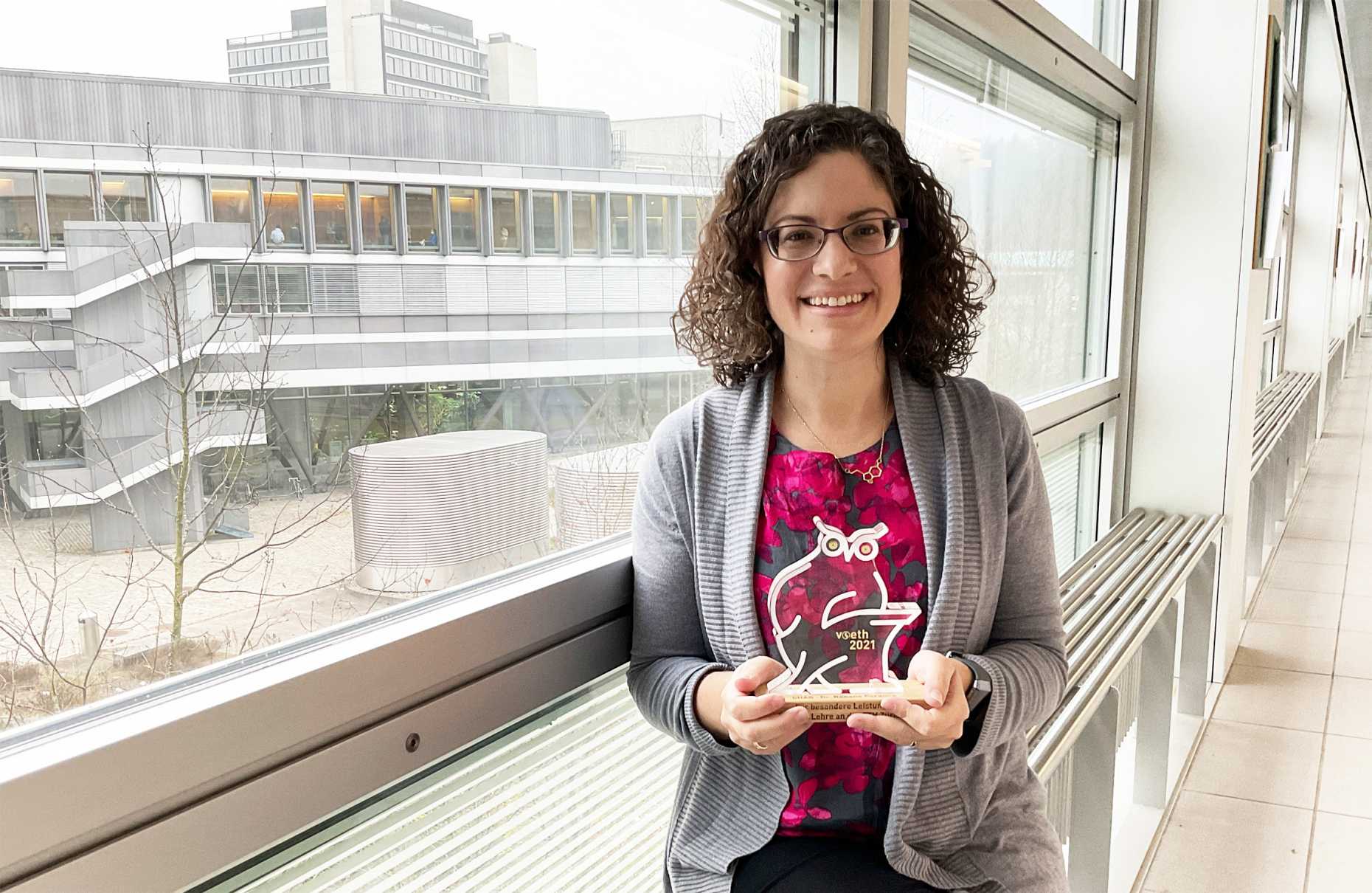"Teaching gives me energy"
- D-CHAB
- LOC
- Highlights
Dr. Renana Gershoni Poranne has put a lot of energy into her course – commonly known as OC4 – and successfully built "bridges": professional ones between quantum chemistry and organic chemistry, and interpersonal ones with her students. The energy always came back to her from the audience, along with beautiful moments. For her commitment, she now received the Golden Owl. A conversation about a special farewell gift, "Kugelbahnen" and the recipe for good teaching
Dr. Renana Gershoni Poranne carries happiness with her – literally. There is her winning smile, and there is the golden serotonin molecule on her necklace, flanked by two stones standing for her sons. Her love for her family, but above all her passion for chemistry and her happiness are part of her personality. You can tell when you talk to Renana Gershoni Poranne about teaching and when you look at the photo that shows her after her first lecture. "I almost seem a bit giddy," she recalls with a laugh, "but the truth is, I felt so extremely exhilarated after the lecture. I was just full of energy."

The chemist, who has origins in Israel, joined Professor Peter Chen's group at the Institute of Organic Chemistry as a post doc in 2015. After two years, she became a group leader and took over Professor Chen's course on qualitative molecular orbital theory – better known to students as OC4. "I had a lot of teaching experience as a tutor, but the first year at ETH was still really hard," Gershoni Poranne admits. "It was my first time teaching in English and at the ETH level. In addition, I had to fill in Professor Chen's shoes, which are huge. He had set up the course and he is an amazing lecturer. It was a big privilege. Thus, I wanted to do justice to both, to the course content and to the students who were relying on me. I basically worked around the clock. But in the following years it has become easier, and the course has developed well."
Professional "bridges"
For Gershoni Poranne, the course has a bridging function: "we take concepts that students have already encountered when they learned quantum chemistry. We take those familiar equations and translate them into pictures that we then apply to questions in organic chemistry, such as: what determines the selectivity of this reaction?" she explains. "The biggest challenge was being clear enough so that the students understand how things are connected. If you understand the framework, you can extend it to anything else, at least up to a certain reasonable limit. I think the most important thing for the students to learn is how to think. If you know how to analyze a system, you can also tap into new knowledge and extract some meaningful chemical insight."
How do you achieve this as a teacher? Gershoni Poranne thinks about it. "Every time I teach something, I try to remember that for the person standing in front of me, this might be the very first time hearing it," she explains, "this includes making every story a complete story, which means: I also explain the basis needed to understand further steps and make clear why a piece of information is important. I repeat things in different ways because I believe that different people have different ways of grasping things. I also try to use real world examples, like the Kugelbahn," Gershoni Poranne says with a laugh, "I think the students were surprised that I knew the word. I use it as an analogy when I talk about molecules on potential energy surfaces. Overall, it's important for students to have fun, too."

Interpersonal "bridges"
When Renana Gershoni Poranne came to Switzerland, she had to get used to a different audience. "Students in Israel ask a lot during the lecture. Here, students are more reserved, they prefer to ask questions during the break. It’s a cultural thing. What I really appreciate about ETH students is their sense of responsibility towards their studies. They are also extremely respectful and courteous. I have had really nice encounters. There was, for instance, one student who did not pass the winter exam. I told him: I am confident you will pass the exam next time. A few months ago, he contacted me and told me he had passed. That means a lot to me – not just that he succeeded, but the fact that he wanted to share his happiness and pride with me."
From now on, Renana Gershoni Poranne will pursue her work at the Technion in Israel. As an assistant professor, she is establishing her new group there and will pursue the research project that she started with her Branco Weiss Fellowship in 2019. She is also looking forward to teaching: "Teaching takes a lot of time, but it is one of the things that gives me a lot of energy too. It makes me really happy to interact with the students and it is so much fun to see how the connections are being made in their brains. It's a privilege to be part of that process."

In this sense, the Golden Owl from VSETH is also a special award to her, in both professional and personal terms. "I was here for a relatively short time, only 6 years, but I think I managed to make a mark with people – together with my teaching assistants. The award belongs to them too, it was really teamwork," Renana Gershoni Poranne emphasizes. "Moreover, a really important part of being part of an academic community is having that relationship with the next generation."
"I am very grateful that the students trusted me to do a good job, to teach them and that they were generous enough to show their recognition. It feels like a beautiful way to close my chapter here."Renana Gershoni Poranne